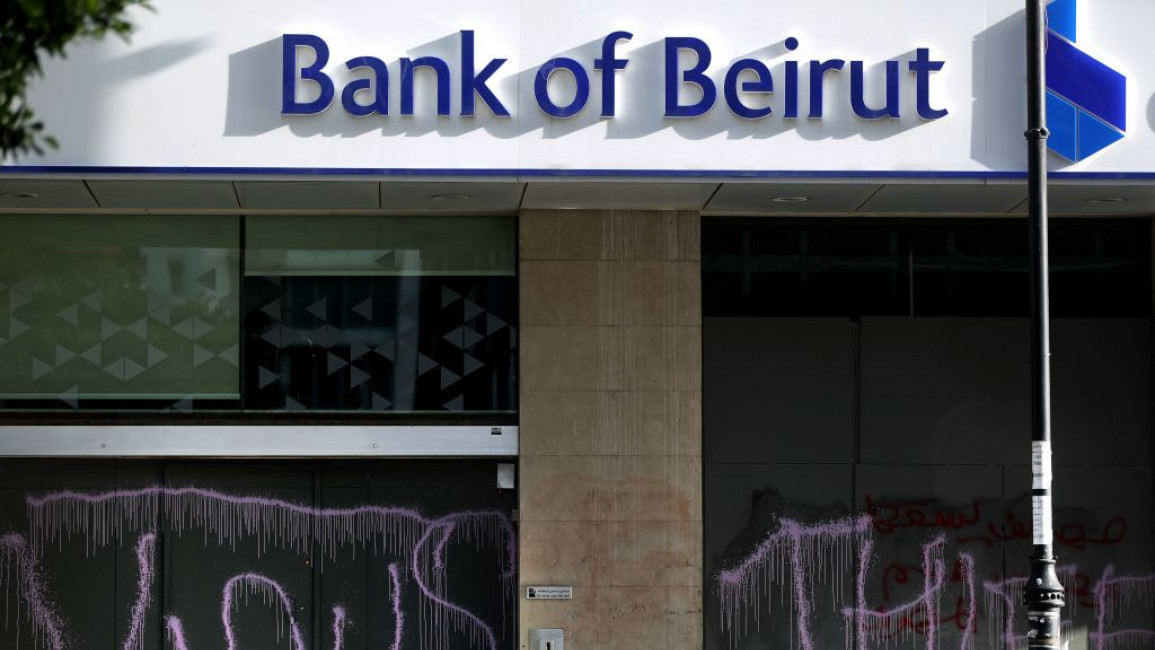Lebanese banks plan strike in response to judicial orders
Lebanese banks plan a two-day strike next week in protest at judicial actions that targeted seven major lenders, a standoff that risks more instability for a country mired in crisis since 2019.
The banking association said the strike was a warning against what it called "the arbitrariness of some judicial decisions" - a reference to orders that have frozen the assets of seven banks since March 14 and banned six of their executives from travel.
Prime Minister Najib Mikati said actions taken by some judges were heightening tensions and he had asked the public prosecutor to "take appropriate measures".
Lebanon's banks have been paralysed since the financial system collapsed in 2019 under the weight of huge public debts caused by decades of state corruption and waste, locking depositors out of their savings. It is Lebanon's most destabilising crisis since the 1975-90 civil war.
"We are facing a very, very dangerous phase in the Lebanese crisis," said Nabil Boumonsef, deputy editor at Annahar newspaper, adding that a protracted bank closure risked social unrest as salaries could not be withdrawn.
Judge Ghada Aoun has frozen the assets of six of the banks as she probes transactions between them and the central bank.
The seventh, Fransabank, had its assets frozen by another judge who ruled in favour of a man who had brought a case demanding the bank reopen his account and pay out his deposit in cash.
Fransabank said on Thursday the order meant it could not dispense cash, including the salaries of public sector employees, as its vaults had been sealed.
Lebanon's failure to pass a capital control law since the crisis began has left it to banks to impose informal controls that have treated depositors unequally. Banks say they have been calling for such a law.
In a separate move on Thursday, Ghada Aoun also ordered the arrest of Raja Salameh, the brother of central bank governor Riad Salameh, on a charge of "complicity in illicit enrichment" in a case a judicial source said also involved the governor.
A lawyer for Raja Salameh declined to comment on the case on Friday, while the office of Riad Salameh's lawyer said he was not available for comment.
'Protecting the perpetrators'
In his statement, Mikati - a supporter of Riad Salameh - did not specify which judicial actions he was criticising.
But he said "the course of action taken by some judges was "pushing towards ominous tensions, and there are attempts to use this tension in election campaigns", referring to a May 15 parliamentary election. "This is a dangerous matter."
Critics of Judge Aoun accuse her of working according to the political agenda of President Michel Aoun, who appointed her as public prosecutor for Mount Lebanon. She denies this, saying that she is implementing the law.
In a tweet, Judge Aoun said it was regrettable to hear "unacceptable attacks on the judiciary when some are not pleased by this or that prosecution", adding: "God forbid that the goal is to protect the perpetrators".
Aoun and his political movement, the Free Patriotic Movement (FPM), are at odds with Mikati and several other major Lebanese parties over Salameh, whose three-decade tenure as governor has faced increased scrutiny since the economy collapsed.
The FPM has called for Salameh's removal, while Mikati has shown support for the central bank chief even as he has faced embezzlement probes at home and abroad.
Salameh faces investigations in Lebanon and at least five European countries including Switzerland over allegations of money laundering and embezzlement of hundreds of millions of dollars at the central bank - investigations in which his younger brother Raja is also implicated.
Salameh has denied any wrongdoing. He has described the accusations against him as politically motivated.



